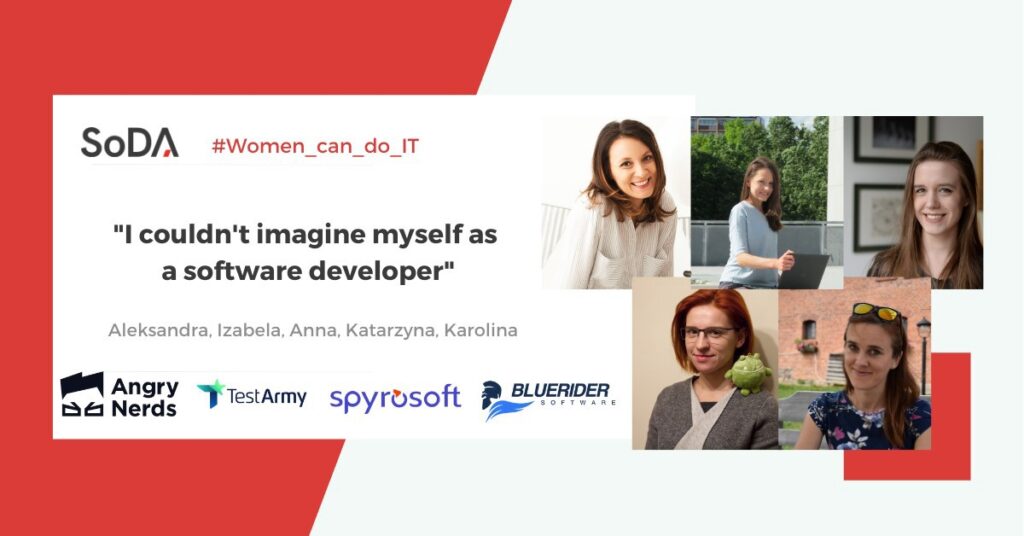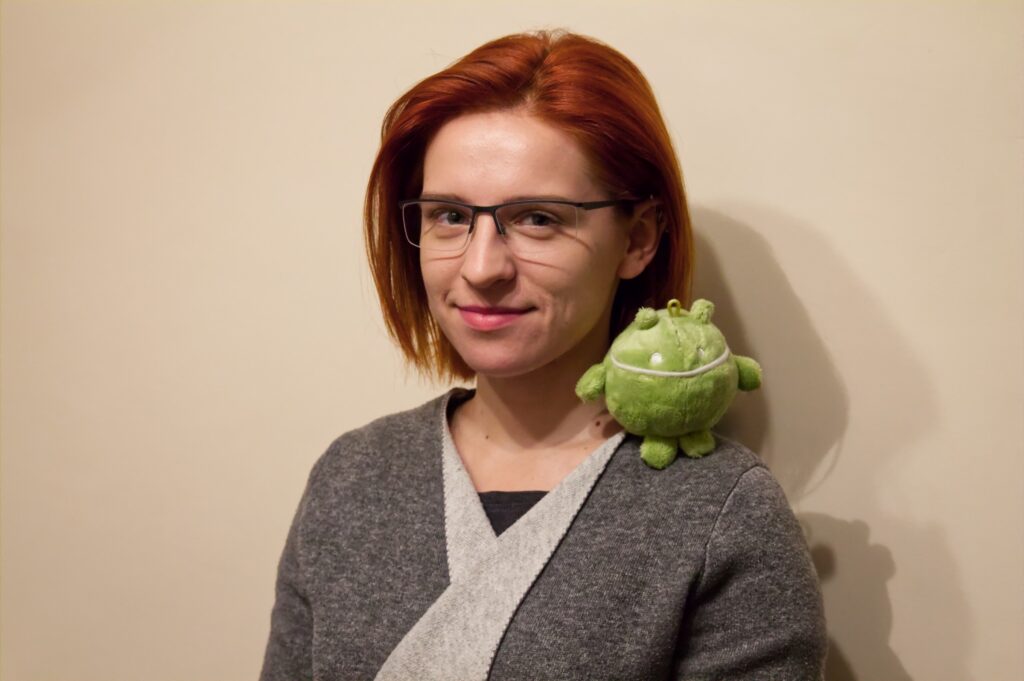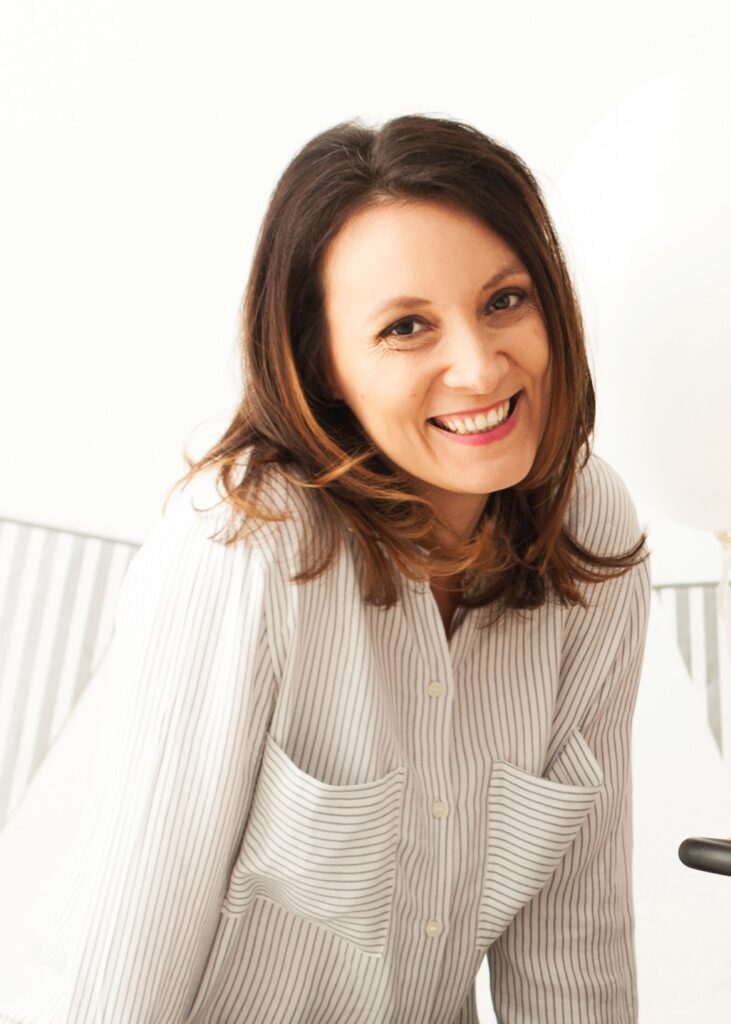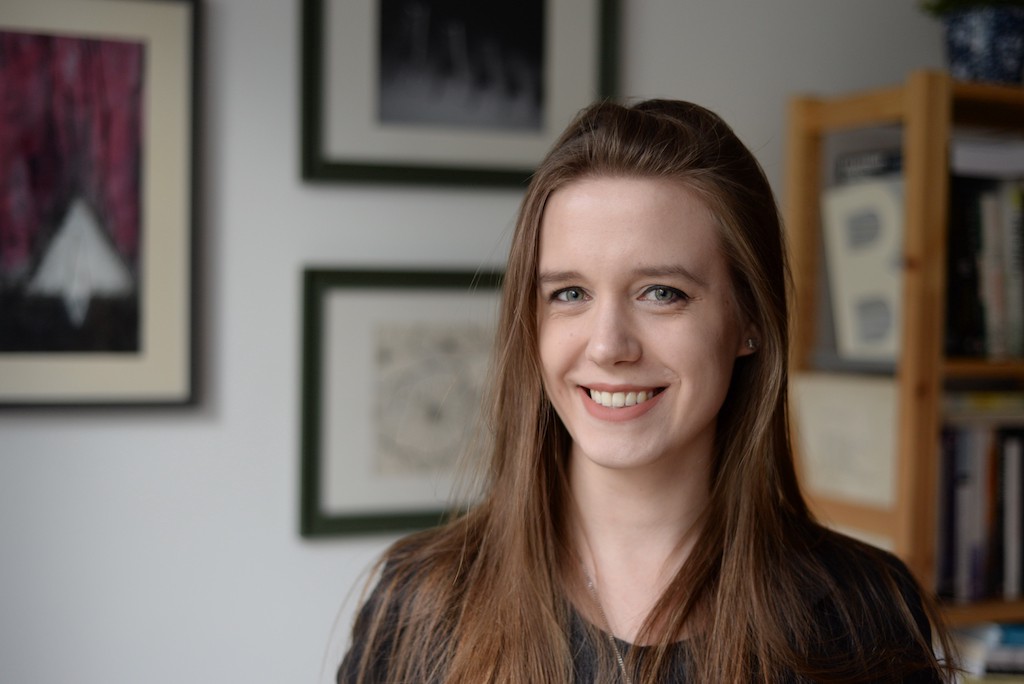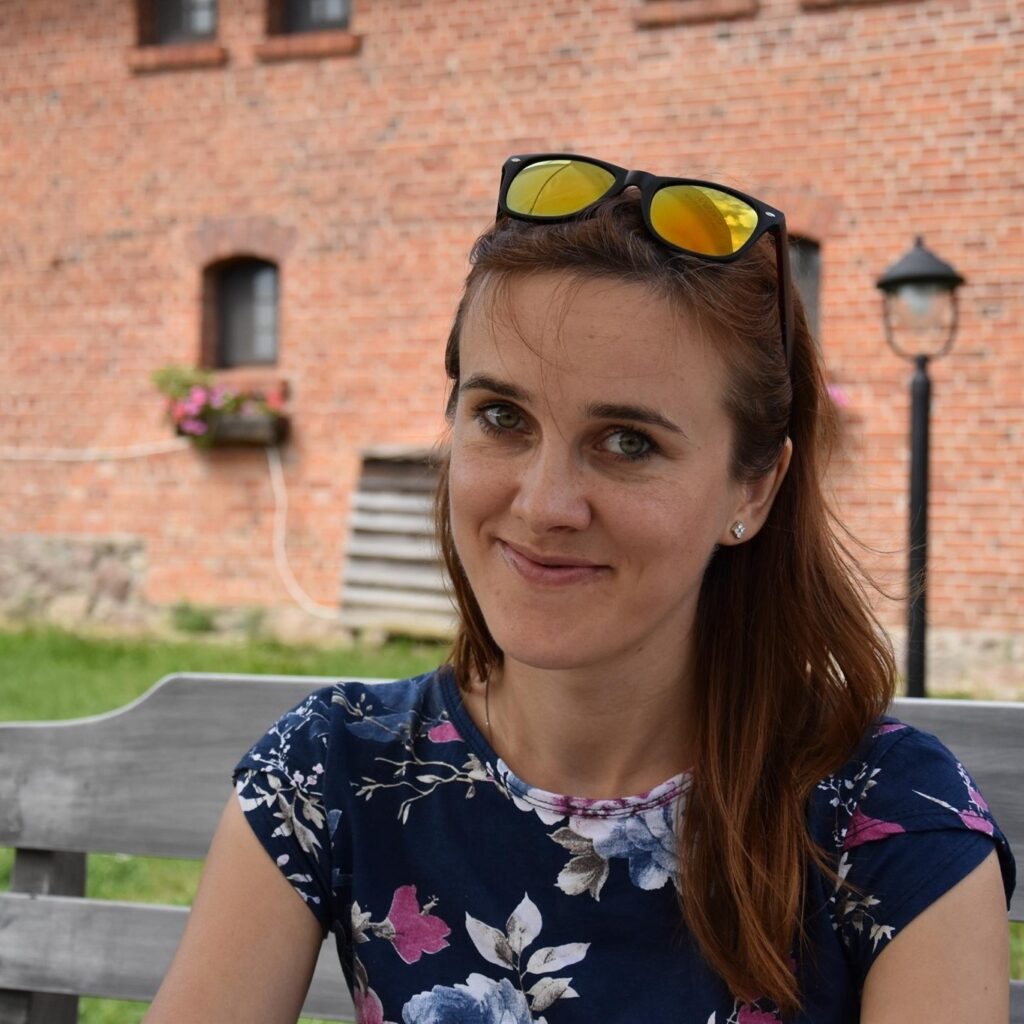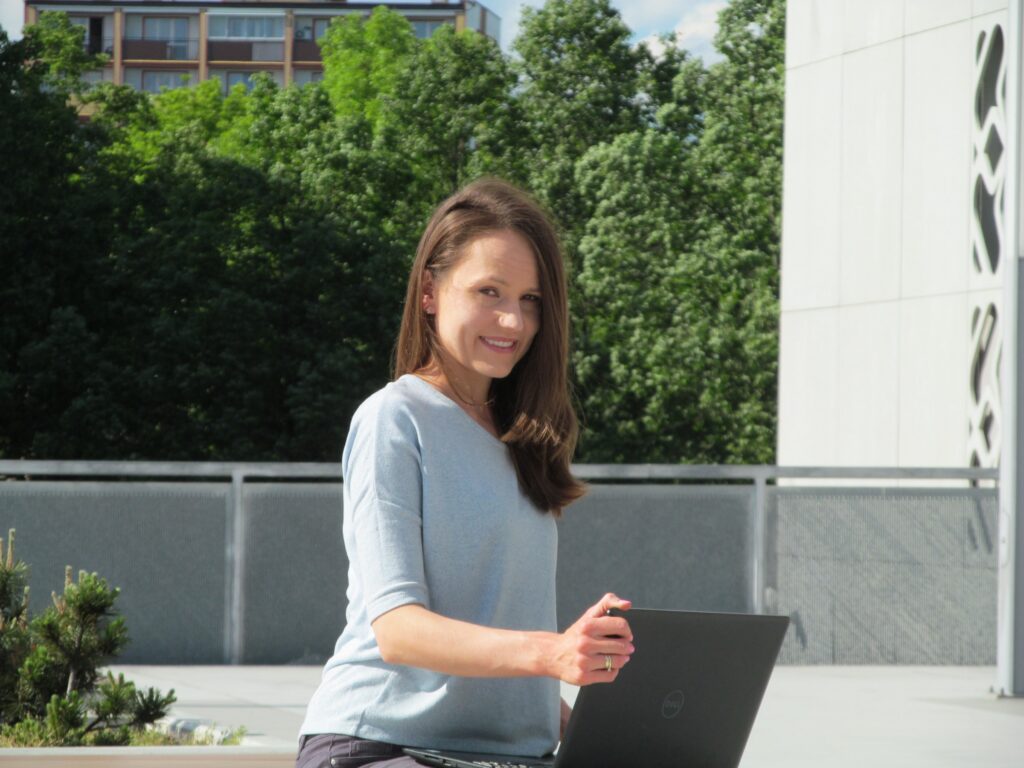Women Can Do IT is a new project of Software Development Association Poland, in which we want to disenchant the IT industry for women and show that it is environment which has enough room for everyone, regardless of their previous experience.
In today’s interview, we talk to Aleksandra Krzemień, Android Developer at Angry Nerds, Izabela Kartowicz-Stolarska, Senior Software Engineer and Anna Włodarczyk, Software Engineer In Test at BlueRider.Software, Katarzyna Paszko, Frontend Developer at Spyrosoft and Karolina Orłowska, Quality Assurance Engineer at TestArmy.
Did your career start in the IT industry? What’s your background as regards your education and the previous career path?
Izabela: When I was in high school, I knew that I wanted to study in a creative field. IT was a natural choice. In addition, I was encouraged by my friends’ opinions who said that Maths dominated in the first year and there was not much programming. I was really surprised when we started coding from the very first class. I remember that I spent a lot of time at the university ‘after hours’ because I didn’t have the internet then (it was 2002, so it wasn’t standard yet). I’m also not sure if I had a working computer for the first month [laughs].
On the third year of my studies, I started working as a graphic designer and web developer. Then I quickly found a job as a Python developer. During these 15 years of professional work, I held multiple positions. I was a graphic designer, frontend developer, backend developer, technical Project Manager, team leader. For 4 years I have also been testing myself as an academic teacher and assistant lecturer at the Faculty of Computer Science of the Bialystok University of Technology.
Katarzyna: I studied management and production engineering. During my studies, I took a lot of internships abroad to learn about different industries and professions and see what I like. When I returned to Poland, I started working in my profession in a logistics department of a production company, but I was frustrated by corporatization and repeatability.
Due to the fact that I found programming classes easy during studies, I terminated my employment contract and I went to a 3-month intensive frontend boot camp. Even before it ended, one of the lecturers offered me a job at his company in Warsaw.
Aleksandra: My story was similar to Iza’s, except I had the internet and computer from the first year [laughs]. I decided to study Computer Mathematics because I knew I wanted to study in a scientific field. The concept of studying computer science freaked me out because I thought I couldn’t make it. I had no prior experience. The description of the studies said that after the first year, we could choose whether to go on a mathematics or computer science path. This made it easier for me to make a decision. Before studies, my then boyfriend — now my husband — lent me a book on programming with some C++ basics. I read it hoping that I would know at least a little what was happening in the class. Meanwhile, during the first programming exercises, it turned out that the code should be written in C [laughs]. After three years, I decided that this ‘computer’ specialization suited me better than Maths.
At the end of the third year, I got my first job as an Android Developer. I started my master’s studies in computer science now because it wasn’t difficult after the bachelor’s degree — I completed the required program differences. And so it stayed that way.
Anna: My story is completely different. I didn’t graduate from a technical faculty. I’m a history graduate. I worked in my profession as an academic teacher for 10 years. I decided to change the discipline after obtaining a doctoral degree. Difficult situation at Polish universities, especially in the humanities, didn’t offer me any interesting career prospects. I decided to try my hand at a completely new field. For many years, the IT industry had seemed attractive to me. I knew from a friend, who was a programmer, that the easiest way for a person with no programming experience to enter the IT world is through testing. I acquired knowledge on this subject on my own, mainly from books and materials available online. Software quality assurance captured me immediately. I decided that this was the field I want to get involved in. Initially, I assumed that it would take me at least half a year to acquire the necessary skills, and a few more months to find a job. My assumptions were too pessimistic. I got a job as a software tester after 3 months from making the decision to change my profession. One job interview was enough.
Karolina: While studying for the final exams at high school, I didn’t know exactly what I wanted to study. I didn’t even consider humanities. I always liked computers and I was a technical person, but I couldn’t imagine myself as a programmer. Finally I decided to study geology, which was a very demanding field.
After 5 years, it turned out that the situation in Poland was difficult when it came to employment in that sector, especially if you were a woman. I came across an ad about becoming a software tester. At that moment, I found it surprising that you could do that with no IT studies. I was learning on my own, also Python, with the help of the great book ‘Automate the Boring Stuff with Python’. I read articles, participated in webinars on how to get started and ended up at the Testing Academy Testuj.pl.
There, we prepared for the ISTQB [International Software Testing Qualifications Board] certification. I passed that certificate and did a four-week internship during which I learnt how to test, how to be a QA [Quality Assurance Engineer], how to report bugs, i.e. the basics. In my third week of internship, I got a message from a girl from HR Test Army: ‘Hi Karolina, I heard that you were good. What do you want to do after the Academy? ‘ I wrote back that I wanted to work because after my internship I was ending up on the street [laughs]. It was my first job in IT and already it hit the bull’s eye.
What do you value most in your current role?
Izabela: At the moment, I most value flexibility in the broad sense, which means not only flexible working hours, but also the possibility of selecting tasks. I have an influence on how a given solution will look, both technically and functionally. I also appreciate the fact that I can work from anywhere — from the office, from home, or for instance, from a park.
Aleksandra: Apart from the fact that I program at work, I’m also a tech lead in several projects, so I certainly appreciate the feeling that I have an influence on how we implement various things and what solutions we use.
Another thing is also that the projects we are developing now work with different external devices. I’ve always found such hardware integrations cool. During my master’s programme I was doing a project in the field of Internet of Things, where the mobile application synchronized and exchanged data with external devices. I built systems based on popular microcontrollers that controlled e.g. light or sensors. If I can do something similar at work, that’s awesome.
Anna: In the entire IT industry, not only in my role, I value the most the opportunity to develop.
New skills can be put into practice very quickly. Increasing qualifications is also very welcome.
Karolina: Something I didn’t experience in my previous job is the fact that what I’m doing has importance. I feel like a significant member of the team. I see the effects of my work and take care of the project as a whole.
Katarzyna: The fact that each time, I get something new to do. No two days are the same. I know people who like to do the same things all the time, but I like challenges.
The greatest professional successes in IT?
Anna: After a year and a half of work in a four-person QA team, I was assigned to a project from the medical industry for a customer from the United States, where I had to take care of quality assurance by myself. After a few weeks, I was entrusted with managing the whole project. Currently, I am its Project Manager. Owing to direct contact with the customer, I participate in deciding on the direction of application development. I consider the possibility of influencing the shape of the manufactured product as my greatest professional success in the IT industry.
Karolina: For me, the biggest success is the project I was in for a long time as it lasted for more than a year. I became involved in it after a month of work at TestArmy, so as a fresh QA. We redesigned the entire website for a well-known American company from the furniture industry.
After some time, I became the Head of QA of this project. I had to take care of the whole developer team and a small QA team from India, so there were also some issues associated with the time difference. The challenge was enormous, yet we finished that project. I remember once my mum asked me what was that I even did at work. I showed her the production site and what you could do there. When going through that website with her, I remembered the bugs I had found there, how I had struggled to accomplish it, and my eyes welled up.
Aleksandra: It seems to me that my whole story for the last 2 years has been a success, when I moved to Wrocław and started working for another company. It is often the case that if someone settles down in one company and wants to change their job, they realize that they have a lot of catching up to do. That’s how I felt it when I came to Angry Nerds. Although I already had 3 years of experience, suddenly it turned out that I was a bit behind. The Kotlin programming language dominates Android now, but when I started it was Java. I had to learn virtually everything from scratch during projects. After 2 years I’m a tech lead, so this is a great achievement for me.
Katarzyna: I was happy when I managed to finish the boot camp and when I got my first job so quickly. I was glad when my first website went into production and I saw that users were actually using it. Co-organizing GirlsJS [a series of regular JavaScript workshops for girls and women] and conducting workshops for girls bring me a lot of joy too. It also gives me a lot of satisfaction when I see how they develop and that I can help them.
Izabela: My answer will be quite unusual, because at each stage of my life something else was a success. At the very beginning, it was when I got into the company where only ‘top dogs’ worked [laughs]. Then the fact that I managed to sell my master’s thesis and I could develop that project for some time.
Other things include my own projects to lead, promotion to a tech leader of a thirteen-person team where half of the people worked remotely in different time zones, or co-organization of such initiatives as Agilestok (regular meetings for people who are interested in developing projects in the Agile methodology) or Programistok.
Currently, I consider it a great success that I already have my personal brand established. During the last lockdown when my husband and I decided to work from home for 6 months and divide our duties and work such hours so that we could take care of our 2.5-year-old son (in my case these are non-standard hours, e.g. 3 p.m. — 9 p.m.), my boss said, ‘Sure, no problem. I know you can do it and will deliver everything on time’. It is really uplifting when your employer trusts you and knows you can handle everything.
What surprised you the most about working in IT? What departs from common opinions?
Karolina: I can tell you honestly that when I heard various common opinions, I was surprised that in fact most, if not all, were true. That we have flexible working hours, that we don’t have to clock out when taking a 15-minute break.
Aleksandra: I didn’t really know many stereotypes. Since I was at high school I heard a rumour that IT specialists were dweebs — no social skills [laughs]. When I started studies, I began to notice that maybe some people were, but you can get along very well even with those living somewhere in the basement when there’s a good occasion, for instance a hackathon or a chat about games.
I can also say that when I was starting my studies, I very often heard that there are few women in this industry and it would be harder for me as a woman. I know it still happens sometimes, but I have never had such problems. When I had my first job interviews or during the first days at work, I was very afraid of it. I haven’t experienced anything like that and it was really a pleasant surprise.
Karolina: I was in a team where I was the QA and I worked with 9 developers, all guys. They never made me feel that I was in some way inferior because I was a woman. I got along with them great and there were never any disapproving looks or comments.
Anna: I remember when I was changing my professional industry, my husband, who generally supported me in this endeavour, was worried about how I, a humanist, would find myself amongst IT specialists fixated on the code. I was also a bit afraid of it. The stereotype of an IT specialist who can’t talk about anything else than computers hasn’t been confirmed at all. It turned out that where I am, I more often talk about opera and books than at the university.
Katarzyna: I, on the other hand, imagined that when someone finishes IT and they start working, they know everything and just write the code like a machine [laughs]. I thought that I would be the only person who would constantly read, search and reflect on problems longer than others. It turned out that all programmers do that, and even when it seems that programmers are only sitting in chill rooms, they are actually trying to find solutions. You have to read a lot of documentation, check tutorials, talk to others and just be good at finding information.
What else are you aspiring to? What are your career goals?
Katarzyna: When I started working in IT, I thought I would get to know frontend a bit and then go towards backend. However, the longer I work in it, the more I see that I prefer the visual side, because when I write something, I can see immediately how it affects the appearance and UI [User Interface — all visual elements of the website or application that allow users to communicate with them] of a given solution. Now I would like to go towards designing. In my latest project I’m responsible for design and frontend. I am also learning that in my spare time.
Aleksandra: In fact during the last 5 years when I’ve been on the market and worked, I’ve devoted a lot of my time to others. For several years I was active in Women in Technology, where I organized meetings and workshops. I would like to catch up with what I’m behind and focus on my own technical development, for instance to learn other technologies such as Flutter or Kotlin Multiplatform.
Anna: Ever since I started working in IT, I have been constantly striving to improve my technical competences. In addition, I have another goal. I want to co-create socially valuable products that solve problems and make life easier for users.
Izabela: At this point I would like to move towards developing my technical skills in the scope of security and Data Science / Machine Learning, because that’s the only place where I haven’t been [laughs]. I also hope it will bring me closer to completing my PhD.
Karolina: Currently, I’m learning programming on my own, because I would like to develop in the field of automation. That I do after hours. During working hours I develop more in the zone that originally didn’t exactly interest me, i.e. the managerial one. It helps me as a QA. In the recent projects I set up a lot of processes, there is a lot of communication with developers or managers, with the customer, on how to improve the testing process from a bird’s eye view, not only by focusing on what we can test, but also how to do it well.
What advice do you have for people who would like to work in IT?
Anna: I often talk to people who would like to change their current profession and start working in IT. Unfortunately, few people manage to do it. The main barrier however is not a lack of technical competence, but a lack of courage to make life changes. Hence my advice to people who are in a similar situation I was two years ago: it’s worth it! Becoming technically competent is much easier than overcoming your own fear.
Karolina: I totally agree with Ania that the most important thing is courage. If you’ve never done it and you have no idea what it looks like, overcoming these barriers and trying to leave your comfort zone is the first and most difficult step. When you already work, then I can say from my perspective that there are features or pathways which are important. Being scrupulous and thorough is extremely important. The same applies to attention to detail, but also the ability to prioritize tasks or organize work under time pressure.
Izabela: I will say the same what I tell my students, i.e.: communication, communication, communication. Many people who are just starting work are afraid to ask for help when there is a technical problem. It is worth to ask already on the first day about standards and workflow applicable in the company to avoid misunderstandings and unnecessary stress.
Additionally: code, code, code. Because programming is an art that requires exercise, just like sport, learning to play an instrument, or drawing. I recommend doing kata programming not only for beginners but also for advanced programmers.
In addition, it is worth taking advantage of YouTube and published recordings of conferences, go to meetups or participate in online ones. There are really a lot of valuable materials on the internet completely free of charge. I also recommend following profiles and getting familiar with the books of Martin Fowler or Uncle Bob, because you can learn a lot from them.
Katarzyna: First, don’t get frustrated if something doesn’t work out, because that’s normal. Some things take longer and you just need to write code, also after work. The more often you do it, the better. This is what I did at the very beginning.
Aleksandra: The girls have already said so much! I will only add two things. It is important to take part in meetings, but also get involved in local communities, because you establish contact with people working in the industry.
Finding a mentor is great. If you have a problem, you don’t spend half the day looking for answers on Stackoverflow [site where developers can ask questions and answer questions from others]. Perhaps someone who has more experience than you will be able to help you much faster and to suggest other solutions, change your way of thinking a little.
It is also worth putting the projects you are working on into Github [a hosting site for Git repositories, that is a tool for managing the source code history]. I know that many people are ashamed of it. They think that their project is poor, but the truth is that when I conduct job interviews, I very often look at Github. I want to see what this person’s projects look like, if there are any design patterns, any architectures and how they approach certain issues.
Thank you for an excellent discussion.
